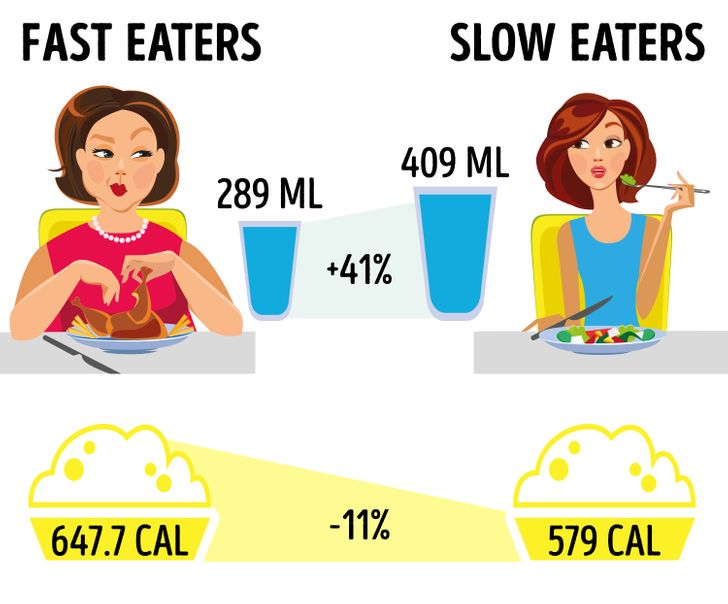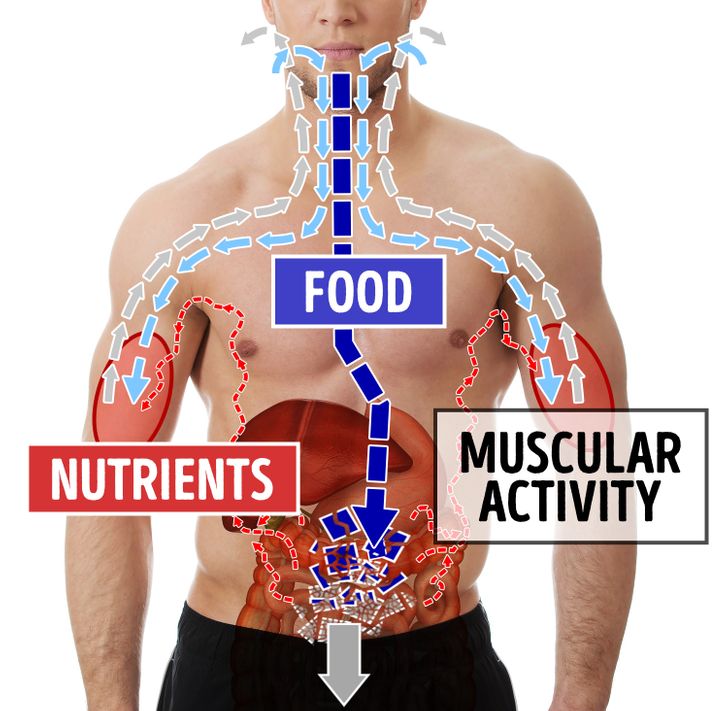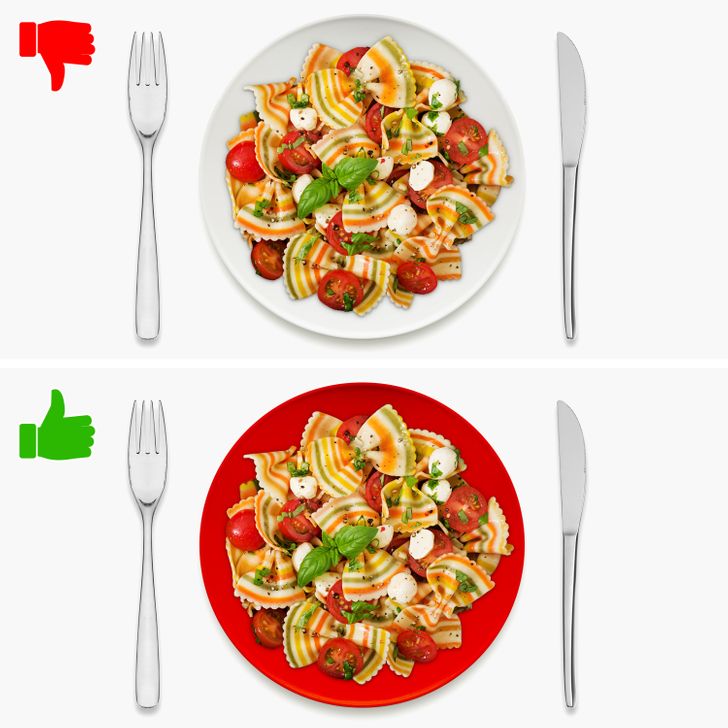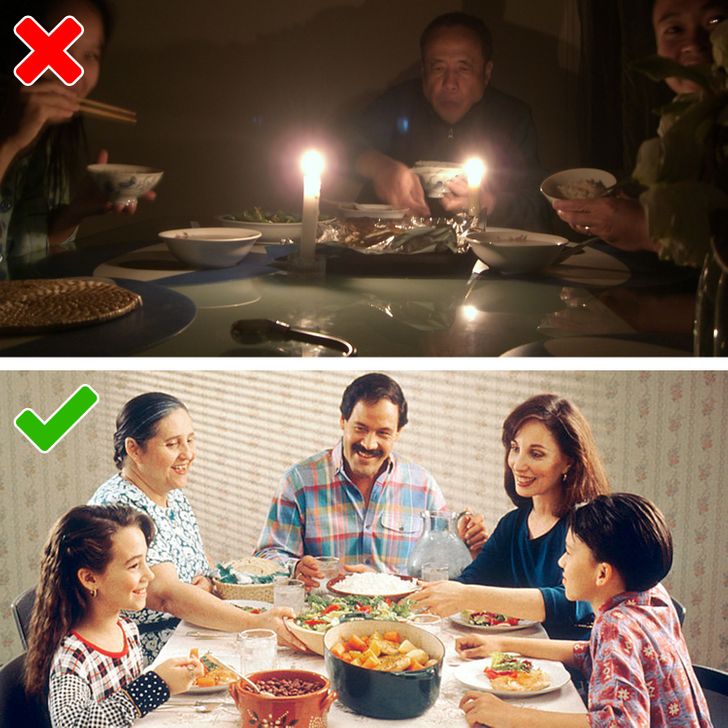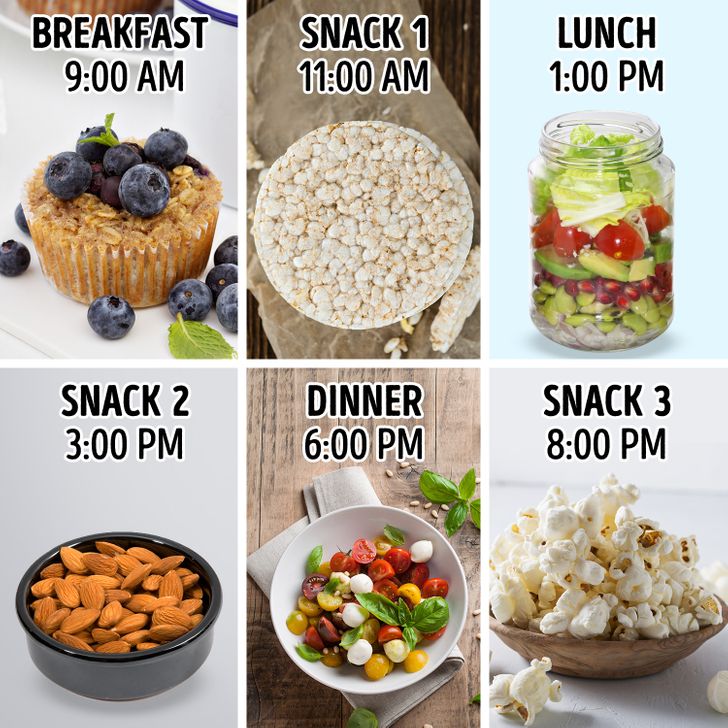Pic 3 . Unhealthy meal, please pasta with cherry tomatoes and basil MUST not considered that. It's one of the most HEALTHY meal (lunch) one can have.
10 Food Habits to Keep You Healthy Without Dieting
A study published in the peer-reviewed journal, American Psychologist, found that short-term dieting in fact does not lead to improvements in weight and health for the most people. Moreover, it has been found in studies that dieting among healthy people, if done to stay healthy, can actually be harmful.
Bright Side recommends lifestyle changes, including changes to your food habits, as a way to stay healthy and strong.
1. Eat slowly and chew well.
A study found that people who eat fast, also gain weight faster than those who eat slowly. Eating slowly and chewing well will make you feel full, even when you have eaten less. To get into the habit of eating slowly, you can start by counting how many times you chew each bite, and gradually increasing the count if you feel you are not chewing enough.
2. Drink water regularly.
Drinking water is essential to being healthy. Drinking water before a meal can also help you lose weight by making you feel full, so you won’t consume excess calories. A study found that people who drank half a liter of water 30 minutes before a meal ate less than those who did not. The study that spanned over a period of 12 weeks concluded that test subjects, who drank water before meals, lost 44% more weight compared to those who did not.
3. Serve unhealthy food on red plates.
This might seem strange, but an experiment found that people drank less from red-colored cups and ate less from red colored plates compared to when they were served the same thing on blue colored cups and plates. A probable reason for this might be that we perceive the color red as a subtle stop signal.
4. Avoid sugary drinks.
Added sugar is the biggest culprit for a number of health-related problems ranging from diabetes and obesity to heart disease. Drinking just one can of soda, which contains about 52 g of sugar, will cause you to exceed the recommended daily added sugar limit of 37.5 grams for men and 25 grams for women. Instead, drink healthy beverages like green tea, coffee, or freshly squeezed fruit juice.
5. Eat without distractions.
Paying attention to eating without being distracted by watching TV or playing games will make you eat less and consume fewer calories. You will also be more mindful of eating healthy food if you are not distracted by your surroundings. A review of 24 studies concluded that people who were distracted at mealtime ate about 10% more in that sitting.
6. Eat 2 eggs a day.

A study published in the International Journal of Obesity found that if, for breakfast, you combine a low-calorie weight-loss diet with eggs, it can enhance your chances of losing weight compared to if you had a bagel for breakfast. This is because the high protein content in the eggs keeps you from feeling hungry for a longer period of time.
7. Eat breakfast every day.
Given the morning rush, we might sometimes skip breakfast or not eat enough. This practice is detrimental to our overall health. Eating breakfast not only gives you ample energy to start your day, but also lowers your odds of getting diabetes, gaining weight, and developing heart disease. Studies have shown that breakfast helps with weight loss. In fact, more than 75% of people who lost more than 28 lbs, eat a morning meal every single day.
8. Chew mint gum if you are hungry.
Chewing sugar-free mint-flavored gum can help you stave of hunger. The mint flavor dulls the taste buds and kills the urge to eat. Research conducted at the University of Rhode Island found that people who chewed gum consumed fewer calories at lunch and did not compensate by eating more later in the day.
9. Eat in a well-lit place.
Eating in well-lit places help people make healthier food choices. According to research conducted by researchers from various American universities, it was found that people who consumed meals in bright places consumed 39% fewer calories than people who ate in dimly lit places.
10. Eat more than 3 times a day.
Rather than eating 3 big meals a day, it is healthier to eat 6 smaller meals. Splitting meals shortens the interval between the traditional meal format of breakfast, lunch, and dinner. It is a proven fact now that the longer you wait to eat a meal, the better the chances are that you will overeat. According to Cleveland dietitian Amy Jamieson-Petonic, “After about 3 hours without food, blood sugar begins to fall. And after 4 hours, your body has already digested whatever you sent down earlier. Once you’ve crossed the 5-hour mark, your blood sugar begins to plummet, and you grab whatever you can to refuel.”
Share your views with us on what you would prefer: dieting or making slight changes in your food habits.
Comments
Now I understand why it's always dark in most restaurants and cafes
awesone tips
Very nice tips which helps every body life
Great tips! I was looking for some good natural beauty tips that are toxic free and this blog has helped me to find some
fitness lifestyle blog . Thanks for sharing!
Related Reads
19 Tweets That Can Make Even the Most Cold-Hearted People Shed a Tear

9 Manicure Trends That Are Dominating This Summer 2025
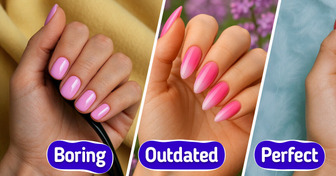
I Survived My Cheating Husband and Now My Daughter’s Back With an Unexpected Request

Pamela Anderson, 55, Hailed “Most Beautiful Woman in the World” as She Dons Iconic Swimsuit

20 Job Interview Stories That Can Help You Read Recruiters Like an Open Book

10+ True Stories About Weddings That Ended Up Ruined

My Marriage Was Perfect Until My Mother-in-Law Interfered With Our Money

10 Dads Whose Unique Parenting Approaches Deserve a Standing Ovation

I’m on a Budget, So I Asked for My Money Back

15 Wild Secrets People Realized a Little Too Late

15 True Stories That Made Us Say, “The World Has Real Angels in It”

My MIL Demanded Our Key, So I Put a Hidden Camera to Catch Her

